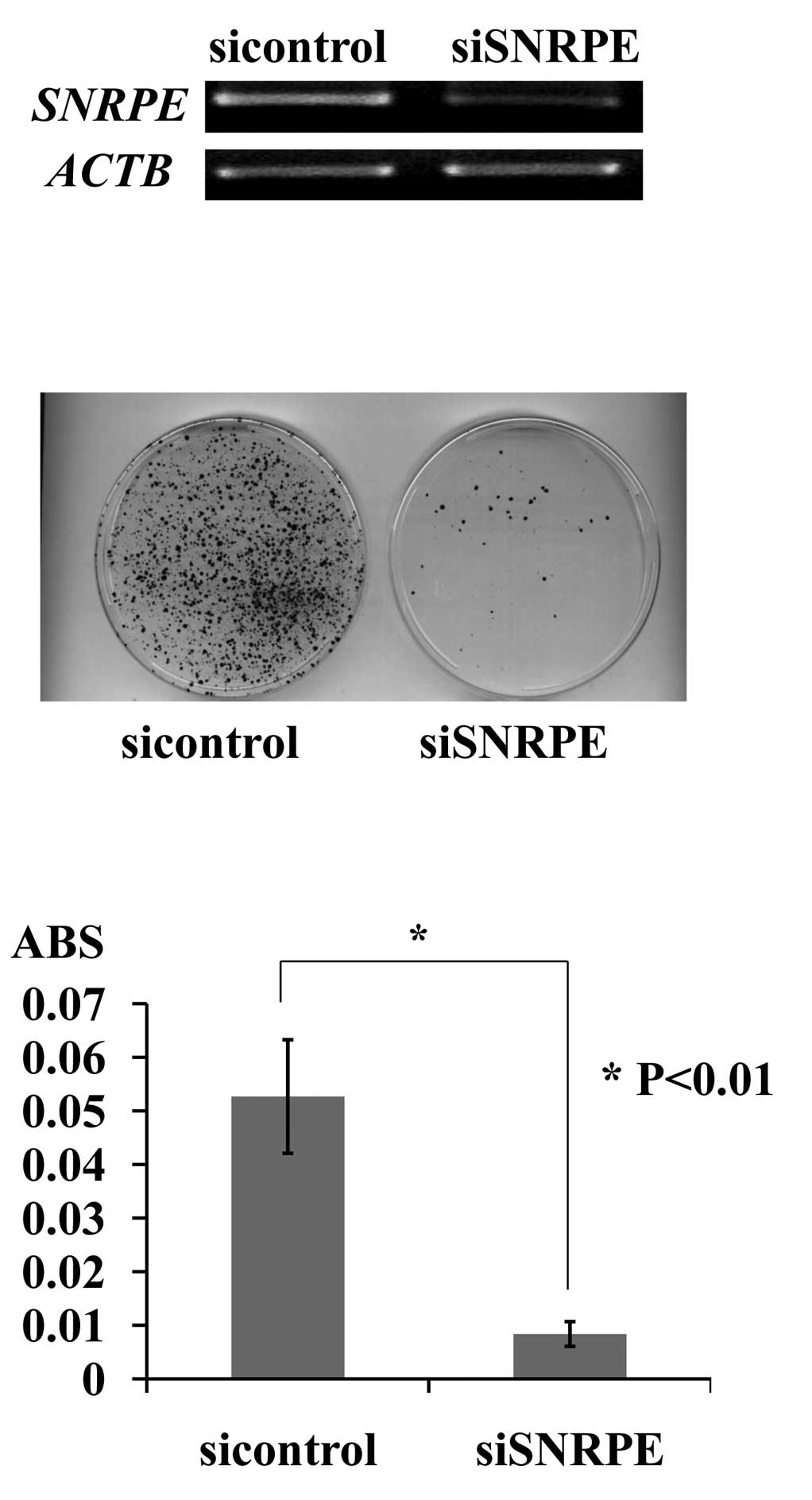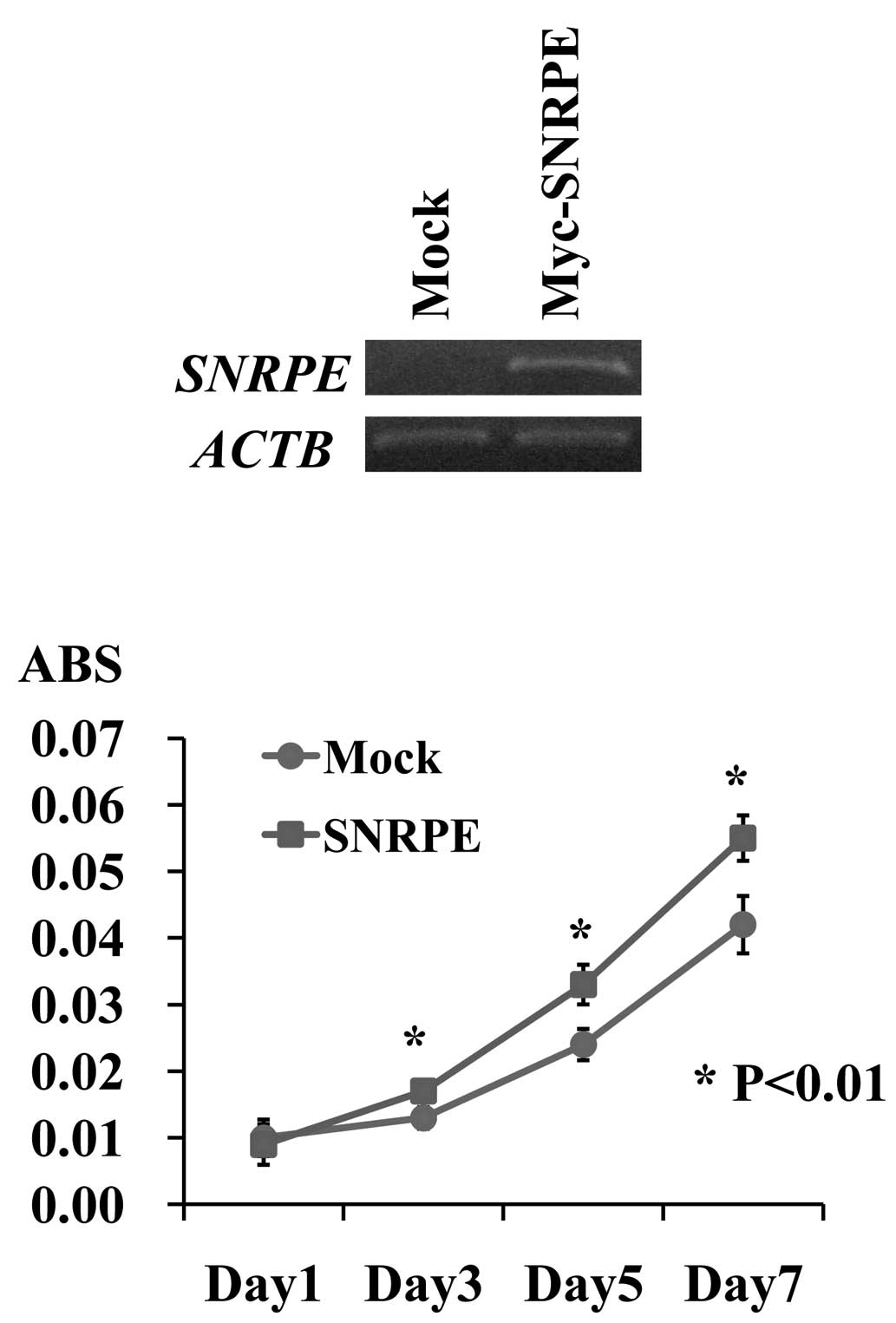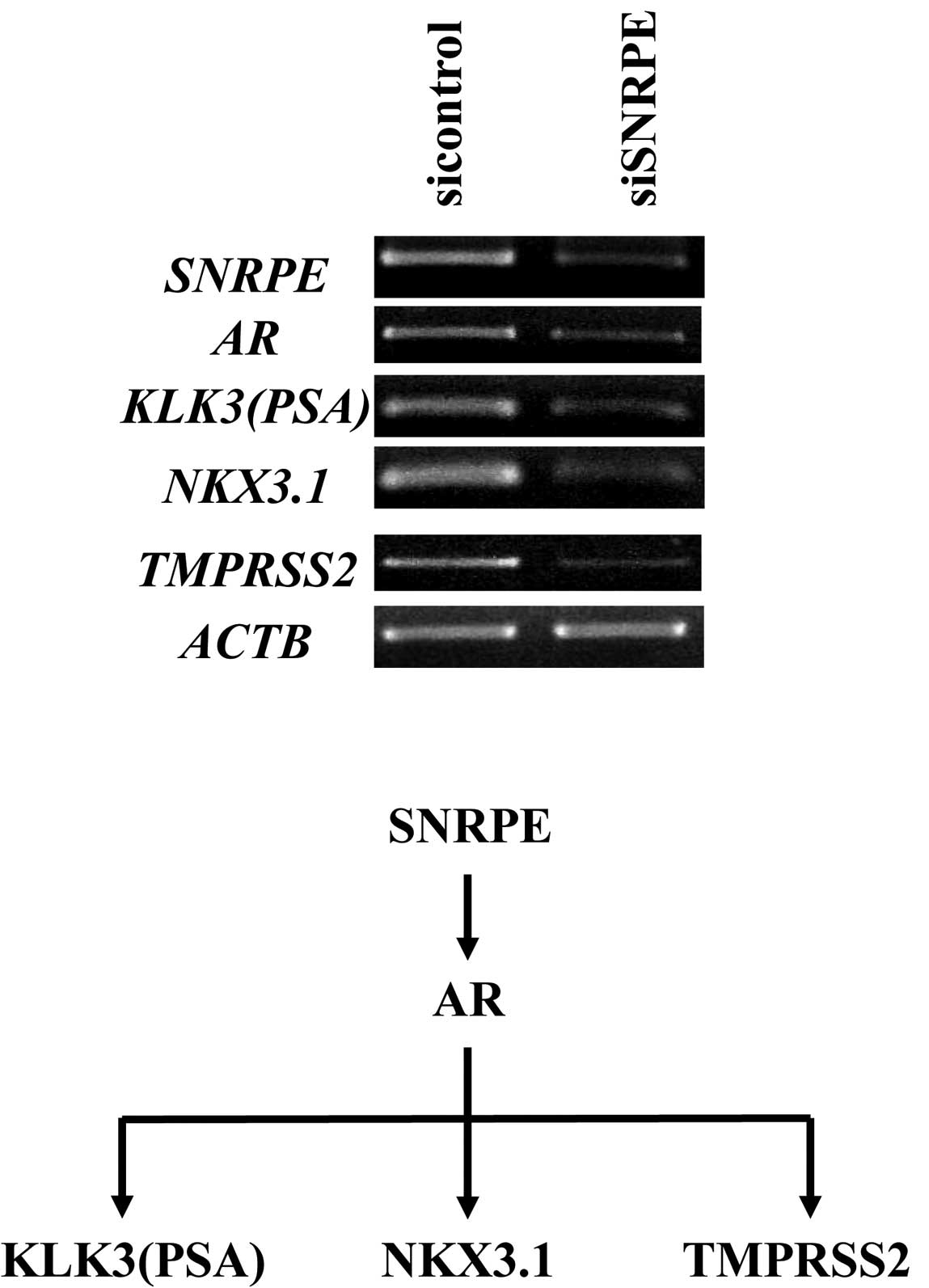Spandidos Publications style
Anchi T, Tamura K, Furihata M, Satake H, Sakoda H, Kawada C, Kamei M, Shimamoto T, Fukuhara H, Fukata S, Fukata S, et al: SNRPE is involved in cell proliferation and progression of high-grade prostate cancer through the regulation of androgen receptor expression. Oncol Lett 3: 264-268, 2012.
APA
Anchi, T., Tamura, K., Furihata, M., Satake, H., Sakoda, H., Kawada, C. ... Shuin, T. (2012). SNRPE is involved in cell proliferation and progression of high-grade prostate cancer through the regulation of androgen receptor expression. Oncology Letters, 3, 264-268. https://doi.org/10.3892/ol.2011.505
MLA
Anchi, T., Tamura, K., Furihata, M., Satake, H., Sakoda, H., Kawada, C., Kamei, M., Shimamoto, T., Fukuhara, H., Fukata, S., Ashida, S., Karashima, T., Yamasaki, I., Yasuda, M., Kamada, M., Inoue, K., Shuin, T."SNRPE is involved in cell proliferation and progression of high-grade prostate cancer through the regulation of androgen receptor expression". Oncology Letters 3.2 (2012): 264-268.
Chicago
Anchi, T., Tamura, K., Furihata, M., Satake, H., Sakoda, H., Kawada, C., Kamei, M., Shimamoto, T., Fukuhara, H., Fukata, S., Ashida, S., Karashima, T., Yamasaki, I., Yasuda, M., Kamada, M., Inoue, K., Shuin, T."SNRPE is involved in cell proliferation and progression of high-grade prostate cancer through the regulation of androgen receptor expression". Oncology Letters 3, no. 2 (2012): 264-268. https://doi.org/10.3892/ol.2011.505


















